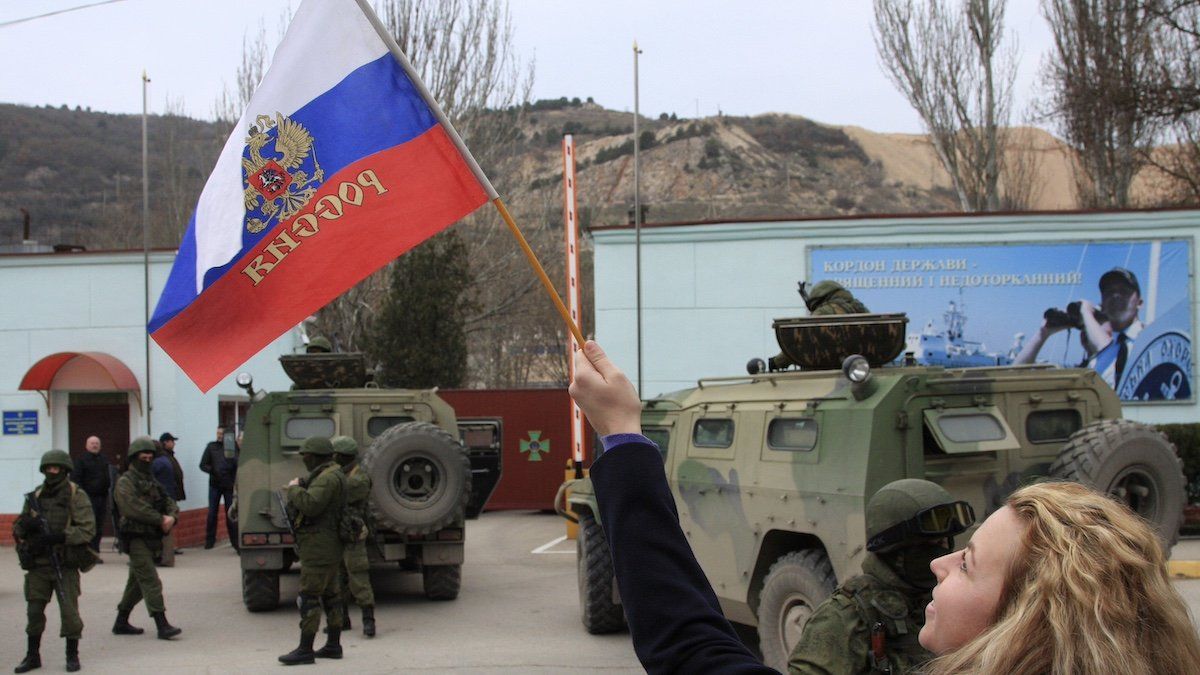Last week, the world marked the two-year anniversary of Russia’s latest invasion of Ukraine, but the active phase of this war really began 10 years ago today. On February 27, 2014, Russian troops began pouring into Crimea to seize this very important piece of real estate.
You’ll be hearing and reading about Crimea for many years to come. Here’s why…
Why did Russia invade Crimea?
Russia’s President Vladimir Putin worked for more than a decade to keep post-Soviet Ukraine from drifting toward closer ties with the European Union after taking power in 2000. In November 2013, protests erupted in Ukraine’s capital when then-president Viktor Yanukovych – a Putin ally/crony – announced Ukraine would not sign a much-anticipated trade agreement with the EU. Yanukovych ordered a violent crackdown before protesters forced him to flee to Moscow. This episode became known as the Maidan revolution, named for the central square in Kyiv where it began.
In response to Ukraine’s pro-European uprising, Putin ordered the seizure of Crimea, the one Ukrainian province where ethnic Russians made up a majority of citizens. (Here’s a good explainer on Crimea’s complex history.)
Ukraine had no sustainable military response. The US and EU condemned the move, and imposed sanctions, but were unwilling to risk a NATO-Russia war over the peninsula.
Why does this small piece of Ukraine remain so important?
Few recognized ten years ago that Crimea was just the beginning of Putin’s broader bid to force Ukraine back into the Kremlin’s control. But it’s certainly clear now that Crimea’s status will be the most difficult part of any future negotiation to end this war.
That bargaining won’t begin soon. Putin continues to signal that he expects bigger gains than the 18% of Ukrainian land Russian forces now occupy. Ukraine’s President Volodymyr Zelensky also acts as if total victory remains possible, and he lacks the domestic political backing he would need to trade land for peace.
But if/when Russian and Ukrainian negotiators finally begin to haggle, Crimea’s symbolic and strategic importance will make it the toughest nut to crack. On the Russian side, Putin has staked enormous personal credibility on his argument that history makes Crimea part of Russia. Giving it back would cost him the fruits of his 2014 invasion, which he considers a great Russian victory. It would also force him to explain why he’s surrendering what he calls core Russian land.
On the Ukrainian side, the surrender of Crimea would force Zelensky to ask Ukrainians to swallow the loss of this symbolically important land that was internationally recognized in 1994 as part of Ukraine, even by the Russian government.
And both sides know that control of Crimea is crucial to Ukraine’s future access to the Black Sea, a crucial part of the country’s continuing economic viability as a nation – and therefore Ukraine’s potential place as a European Union member state.
